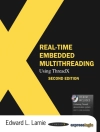This book investigates the multiuser communication and its key technology—multiple access technology, as well as transceiving design methods. Multiple access methods toward B5G and 6G currently allows the superposition transmissions of multiuser signals with controllable mutual interference. By deploying advanced multiuser detector, current technology significantly enhances the connectivity, improves the spectral efficiency and simplifies the signaling interactions. Considering that the major challenge of current multiple access technology is the design of transceiver due to the overlapped and distorted signals from multiple users, we analyze the promising candidate multiple access schemes and then develop some sights on how to formulate the transmit signals and how to achieve efficient symbol recovery. Specifically, the incorporation of constellation rotation, rate splitting and deep learning techniques in enhancing the transmission efficiency of multiple access technology are considered.
قائمة المحتويات
Introduction.- Multiple Access Toward 5G and Beyond.- Multiple Access Toward Non-Terrestrial Networks.- Constellation Design Technique for Multiple Access.- Rate-Adaptive Design for Multiple Access.- Artificial Intelligence-Enhanced Multiple Access.- Deep Learning-Aided High-Throughput Multiple Access.- Summary.
عن المؤلف
Neng Ye received his B.E. and Ph.D degrees (hons.) from Beijing Institute of Technology, China, in 2015 and 2021, respectively. He was a 5G/B5G research intern with the Wireless Technology Department, DOCOMO Beijing Laboratories, from 2015 to 2020. He is currently an assistant professor with the School of Cyberspace Science and Technology, Beijing Institute of Technology. He is a Young Editor of the Journal of Electronics & Information Technology. In his work, he focuses on both research and standardization of next generation radio access. His research interests include multi-user information theory, non-orthogonal multiple access, waveform, cell-free MIMO, and deep learning.
Xiangming Li received the Ph.D degree in communication and information engineering from the Beijing University of Posts and Telecommunications, Beijing, China, in 2000. From August 2000 to January 2002, he was with Agilent Technologies as a Software Engineer. From January 2002 to June 2003, he was a Post-Doctoral Fellow with the Department of Electrical and Computer Engineering, Concordia University, Canada, and with the Department of Electronic Engineering, City University of Hong Kong. From June 2003 to December 2005, he was an Associate Professor with the School of Communication and Information Engineering, Chongqing University of Posts and Telecommunications, China. From January 2006 to February 2008, he worked at NTT DOCOMO Beijing Communications Laboratories Co. Ltd., as a Researcher and Research Manager. In February 2008, he joined the School of Information and Electronics Engineering, Beijing Institute of Technology, where he is currently a Full Professor. His current research interests include wireless and mobile communications, information theory and coding, and information learning.
Kai Yang received the Ph.D. degree from Beijing Institute of Technology, China, in 2010. From Jan. 2010 to July 2010, he was with the Department of Electronic and Information Engineering, Hong Kong Polytechnic University. From 2010 to 2013, he was with Alcatel-Lucent Shanghai Bell, Shanghai, China. In 2013, he joined the Laboratoire de Recherche en Informatique, University Paris Sud 11, Orsay, France. Now, he is a professor in the School of Information and Electronics, Beijing Institute of Technology, Beijing, China. His current research interests include resource allocation, convex optimization, massive MIMO, mm Wave systems, and interference mitigation.
Jianping An received his B.E. degree from Information Engineering University in 1987, and his M.S. and Ph.D. degrees from Beijing Institute of Technology in 1992 and 1996, respectively. Since 1996, he has been with the School of Information and Electronics, Beijing Institute of Technology, where he is now a full professor and is also the Dean of the School of Cyberspace Science and Technology. From 2010 to 2011, he was a visiting professor at the University of California, San Diego. He has published more than 150 journal and conference articles and holds (or co-holds) more than 50 patents. He has received various awards for his academic achievements and the resultant industrial influences, including the National Award for Scientific and Technological Progress of China (1997) and the Excellent Young Teacher Award from China’s Ministry of Education (2000). Since 2010, he has been serving as a Chief Reviewing Expert for the Information Technology Division, National Scientific Foundation of China. His current research interests are focused on digital signal processing theory and algorithms for communication systems.












